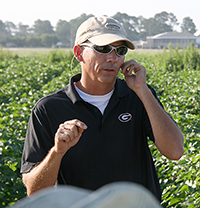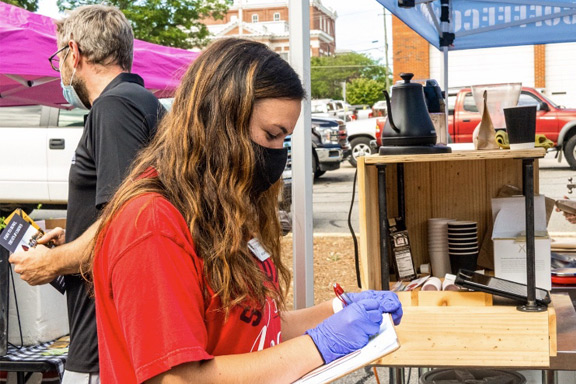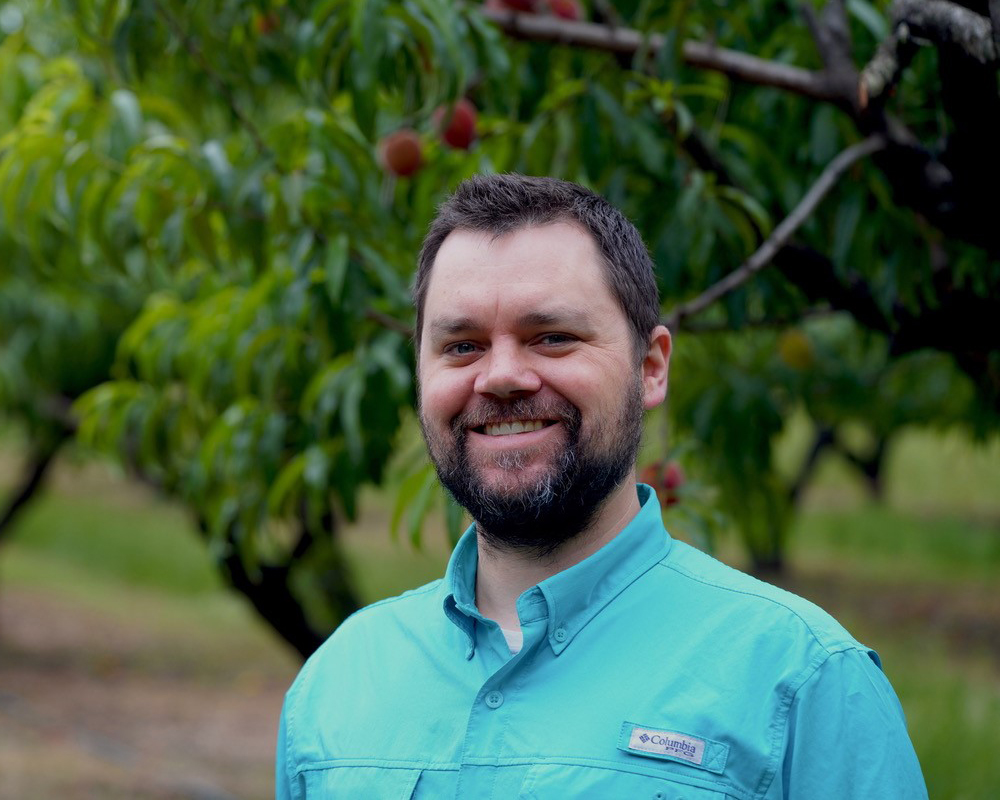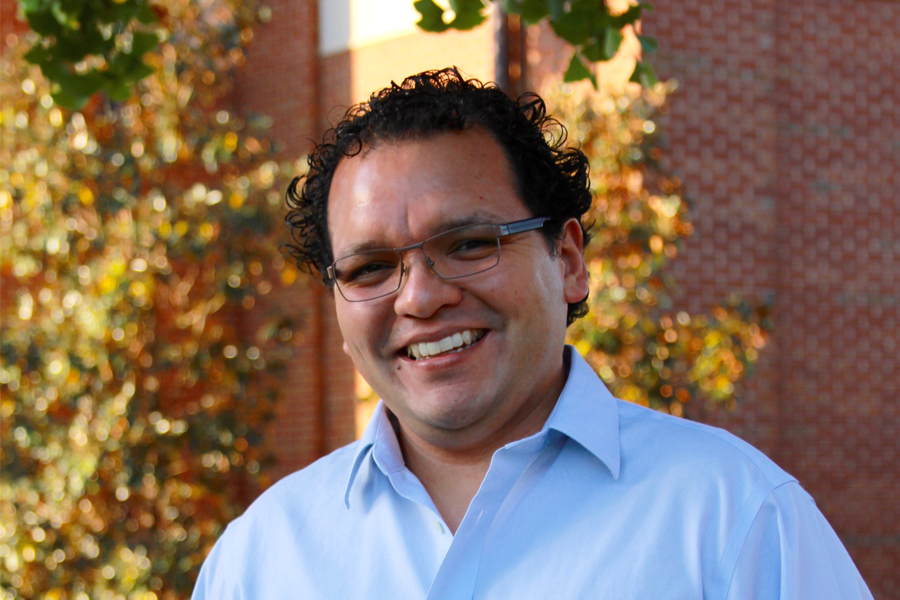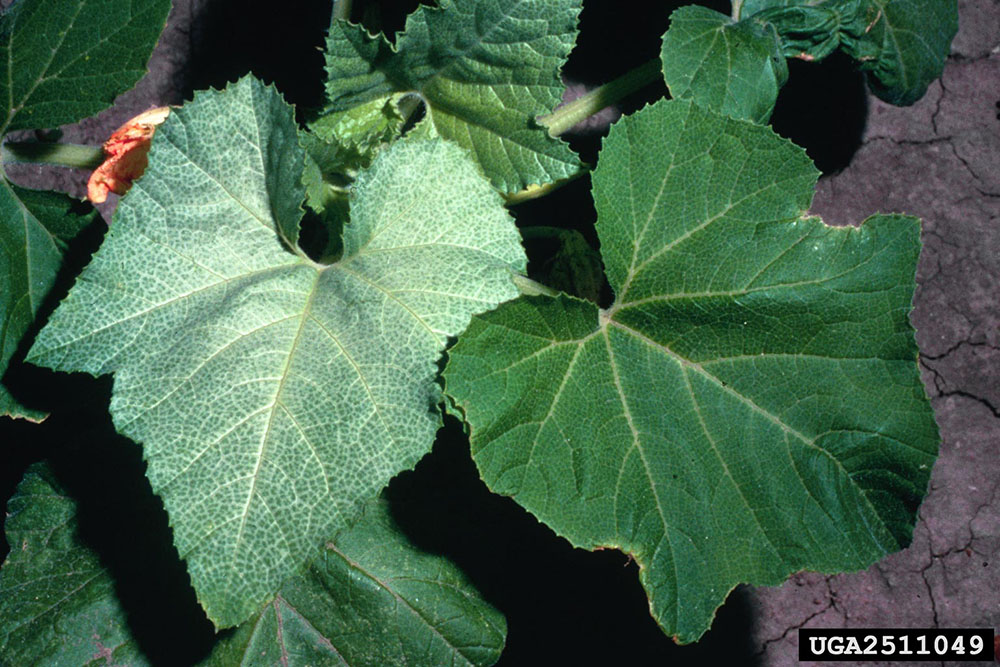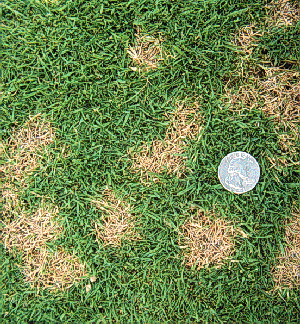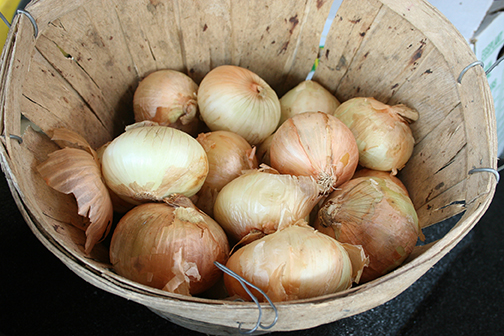University of Georgia Cooperative Extension weed scientist Stanley Culpepper will soon share his expertise with the Environmental Protection Agency (EPA) Science Advisory Board.
Culpepper, an agronomist on the UGA Tifton Campus, is one of 19 scientists recently chosen for the board’s Agriculture Science Committee. While working with the EPA, Culpepper will provide advice on matters that have significant and direct impacts on farming and agriculture-related industries.
“My goal in helping our amazing farmers feed and clothe the world will not change with this new appointment,” Culpepper said. “In fact, this position will foster an even stronger relationship with the EPA, enhancing our ability to help them in the use of sound science and practical experience when making decisions that impact agriculture.”
He views his appointment as a way to improve the agricultural community’s communication with the EPA, which will “benefit everyone,” he said, and help the EPA better understand potential issues faced by American farmers.
Culpepper stresses the critical need to continually strive for improvement in agriculture. “If science insists that a certain approach needs adjusting, then we should welcome the opportunity to lead the research in addressing the challenge,” Culpepper said.
Although he embraces his new position, Culpepper is quick to point out the huge responsibility that comes with his appointment. He believes that to be successful, he must not attempt to tackle this new responsibility alone.
“Tapping into an amazing wealth of knowledge from University of Georgia Cooperative Extension agents, growers, university administrators and other agricultural entities is the key,” Culpepper said.
Culpepper joined UGA Extension on the Tifton Campus in 1999. During his award-winning career, he has been instrumental in finding ways to combat glyphosate-resistant Palmer amaranth, a weed that seriously threatens Georgia’s cotton production, and finding alternatives to the pesticide methyl bromide for Georgia’s vegetable industry. Culpepper has also been on the front lines, providing educational information to growers on the importance of targeted pesticide applications.
“I can’t say enough about Dr. Culpepper’s value to UGA Extension and growers in Georgia. He is dedicated to helping Georgia producers be more productive in their farming operations by providing valuable education and helping them be better managers of the resources at their disposal. I have no doubt he will continue that same impact in his new role with the Environmental Protection Agency,” said Laura Perry Johnson, UGA associate dean for Extension.
Perhaps nothing is more valuable to Culpepper than his childhood growing up on a bicentennial family farm in North Carolina. He knows what it takes to be a successful farmer and hopes to provide a different perspective to the EPA Science Advisory Board.
“Hopefully, I can take that family-farm perspective and help those who are a little unfamiliar with our way of life better understand the complexities and difficulties farmers face each day,” Culpepper said. “In my experience as a weed scientist, working with the EPA to address significant issues facing our farmers has been almost all positive; a little painful at times, but still positive for agriculture, for me and I think even for the EPA. I look forward to doing an even better job in the future.”


